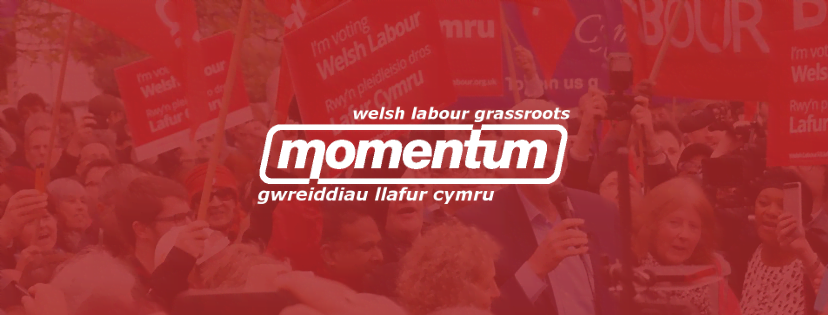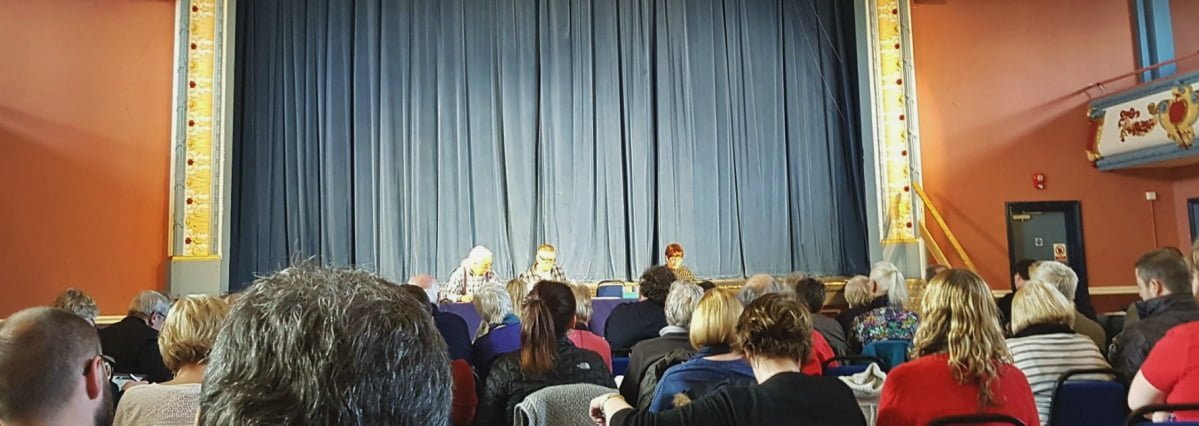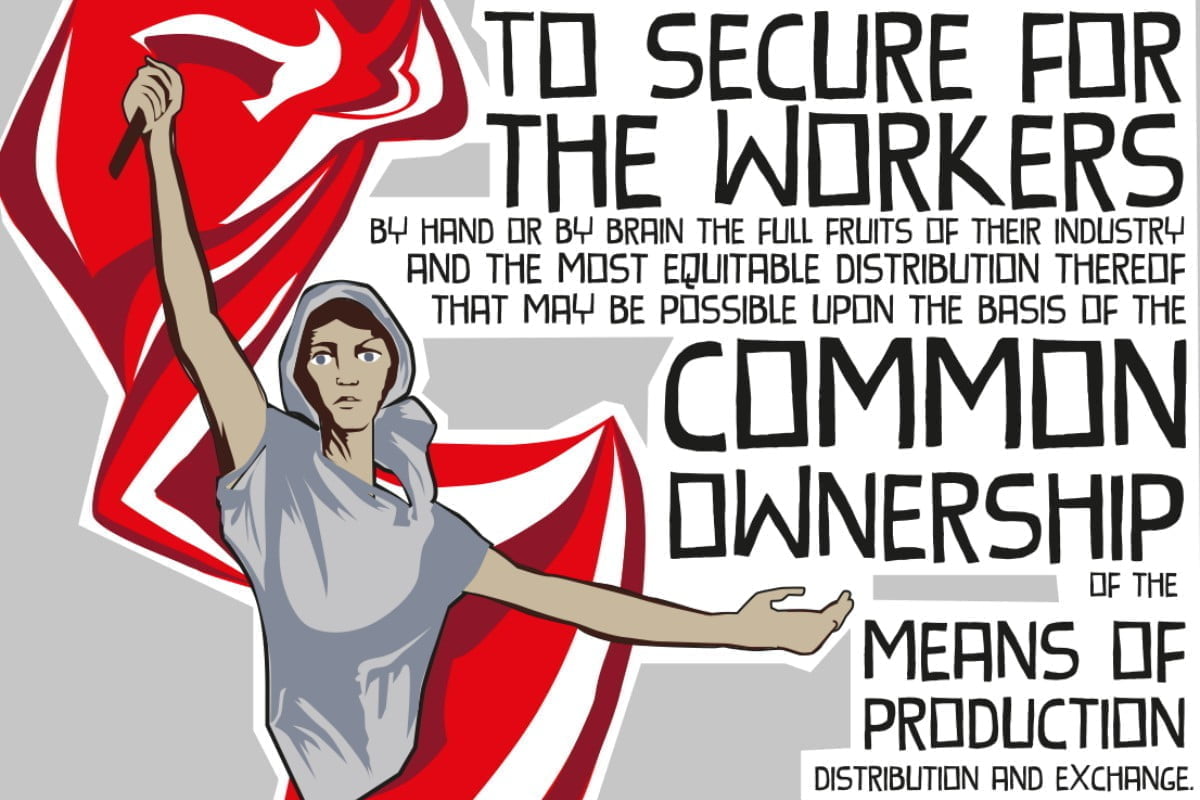Socialist Appeal supporters in South Wales report from the recent AGM of Welsh Labour Grassroots, where an enthusing discussion took place around the restoration of Labour’s socialist clause.
On Sunday 25th March, around 100 activists from the Welsh Labour Grassroots (Momentum in Wales) met up in Llandrindod Wells, a small town in mid-Wales, for the organisation’s Annual General Meeting (AGM).
Among other political and organisational questions on the agenda, the conference discussed the question of Clause IV. A motion was submitted from Swansea that called for the reinstatement of this socialist clause back into the Labour constitution.
Clause IV was originally introduced in 1918, under the impact of the October Revolution in Russia. It called on Labour to:
“Secure for the workers by hand or by brain the full fruits of their industry and the most equitable distribution thereof that may be possible upon the basis of the common ownership of the means of production, distribution and exchange.”
This demand for socialism reflected the revolutionary mood that existed across Europe following the war and the events in Russia.
The proposal to restore Clause IV at the AGM was moved by a supporter of Socialist Appeal, whose speech was greeted with a thunderous standing ovation.
The meeting voted decisively to back the motion, which called to commit the Labour Party to the socialist transformation of society.
After buying a copy of the Socialist Appeal newspaper, one Momentum member admitted to us about how teary she got during this inspirational discussion.

Labour4Clause4
This marks an important step forward for the Labour4Clause4 campaign, set up by Labour members and activists earlier this year.
The campaign, which fights to commit Labour to nationalise the commanding heights of the economy, has already managed to gain the support of several leading left-wingers, such as Dennis Skinner MP and film director Ken Loach.
The campaign also hit the headlines of several major media outlets a month ago, on the centenary anniversary of Clause IV’s introduction.
This Welsh Labour Grassroots conference is another key marker for the campaign. The ideas contained in Clause IV highlight the necessity of overthrowing capitalism and introducing a socialist planned economy, based on workers’ control over the means of production.
Finding an echo
 The AGM discussion on Clause IV was introduced by a speech from a Socialist Appeal activist from Swansea.
The AGM discussion on Clause IV was introduced by a speech from a Socialist Appeal activist from Swansea.
When moving the motion, the comrade provided the general context of the harsh reality of capitalism today, linking this to the necessity of committing Labour to socialist policies. He argued that:
“After the fall of the USSR, the bourgeois press were celebrating that we witnessed the ‘Victory of capitalism over communism’ and ‘The end of history’. The devastating impact of the 2008 global capitalist crisis left not one stone upon another of these statements.”
He continued:
“Everywhere people are looking for a way out. Beneath the apparently calm surface, an immense amount of seething anger is building up, looking for a way out, looking for an expression.”
In his speech, the comrade gave the example of what happened to left-wing governments in Greece and France in recent times, warning that a Corbyn government will face the same pressures. He finished:
“The only force which can abolish poverty, wars, unemployment and capitalism once and for all is the revolutionary movement of the working class, armed with an organisation and programme that can bring it to power. This is why I urge you to support this motion.”
The ideas clearly found an echo in the conference hall and were greeted with a thunderous standing ovation. The whole room was energised a thousandfold.
Participants in the discussion talked about the need to learn from history – not just from past Labour governments, but also more recently from the governments of Hollande in France and Tsipras in Greece.
All these experiences highlight that austerity is not an ideological choice – it flows from the crisis of capitalism. As one Momentum member from Wrexham remarked:
“The capitalist state will always seek to crush any workers’ movement that threatens the privileges of the ruling class. Just look what they did to Chile and Allende. Tinkering around the edges does not work. We need to commit Labour to the full transformation of society.”
The myth of ‘modernisation’
On the other hand, there were a few people in the audience who argued that whilst they “agree with the sentiment” of restoring Clause IV, the wording needs to be “more modern”. We must be “looking forwards, not backwards”, it was said.
This kind of objection is nothing new. Gaitskell used it against Nye Bevan; Denis Healey used it against Tony Benn.
In every case, however, the whole argument for ‘new ideas’ and ‘looking forwards’ is always used, in fact, to justify maintaining the broken status quo. It is always the so-called ‘modernisers’ in the right wing that become discredited and forgotten about. The ‘old’ and ‘antiquated’ left, by contrast, becomes a source of inspiration for millions of people around the world by talking about the need for socialism.
Plenty of ‘new’ ideas are in fact a rehash of the same discredited method of pursuing the path of least resistance. This always ends up putting a brake on the real movement of the working class, paving the way for deeper disasters in the future.
Just as one cannot serve two gods, so one cannot appease both the capitalists and the working class.
Tony Blair ‘modernised’ the Labour constitution by scrapping Clause IV and replacing it with a vague and vacuous alternative. He did this as part of his attempt to turn the Labour Party into the British equivalent of the American Democratic Party, with the structures of the party cut off from the workers’ movement and turned into a training ground for careerists.
Labour’s leaders of this same ilk in Scotland almost razed the Party to the ground north of the border. This pattern has repeated itself on an unprecedented scale throughout Europe, with ‘modern’ socialist democracies everywhere (except in Britain) now trailing in the polls.

An idea whose time has come
It is clear that the crisis of capitalism has become a crisis for reformism – a crisis for those leaders who think they can reform capitalism and find a way forward within the confines of the profit system.
The only genuine alternative, however, is for the working class to take power from the dictatorship of banks and big monopolies that currently control society. We have entered a significant epoch in the history of capitalism and of humanity as a whole. Revolutions are on the order of the day. People can increasingly see that something is deeply wrong and that society needs to be fundamentally changed.
This is why the demands for nationalisation, common ownership, and socialist policies are finding an echo amongst workers and youth. In the words of the French poet Victor Hugo: “There is nothing more powerful than an idea whose time has come.”
It is our task, in the words of Marx, to turn these ideas into a material force that can change society.






